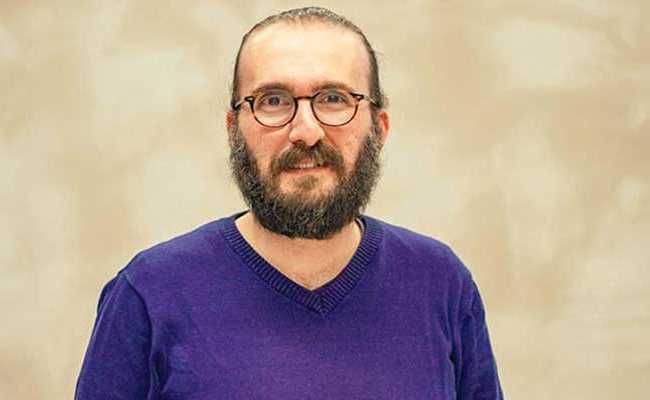A wave of Alzheimer’s could hit the world

Dr. KIZIL (Associate Professor of Neuroscience from Columbia University) who is working to shed light on the secrets of Alzheimer’s, draws attention to a critical point: We think that isolation in the pandemic will rapidly increase the disease rate in the coming period. Although more than 100 years have passed since the detection of Alzheimer’s, it is a disease for which no cure has yet been found. Moreover, the rate increases as life expectancy increases. September 21 is being organized as World Alzheimer’s Day to support those suffering from this disease and their relatives.
Associate Professor Doctor CAGHAN KIZIL gave an important interview on the progress on this topic a day before September 21. The doctor, a Neuroscience specialist transferred from the University of Dresden in Germany, where he had been working for many years, to Columbia University in the United States. The journalist met with KIZIL during his visit to Istanbul and made this interview
NIGHTMARE OF THE CENTURY
Thousands of people around the world die every year due to Alzheimer’s, a medical condition that develops in the form of memory loss, dementia (dementia) and a decrease in cognitive functions in general due to the death of brain cells over time. Alzheimer’s, first described by the German psychiatrist and pathologist Alois Alzheimer in 1906 and found to cause severe damage to brain tissues in people over the age of 65, is seen as the nightmare of 21st century. The disease is described as a decrease in daily activities and cognitive abilities, which are characterized by neuropsychiatric symptoms and behavioral changes accompanied by a deterioration in neurodegenerative and it has no known cure. Alzheimer’s-related deaths in the United States are the 5th cause of death in people aged 65 years and older. As a result of the aging of the population, in 2050 about 70 percent of those who experience dementia will be in developing countries.
WE’RE SOLVING CANCER, BUT ALZHEIMER’S IS ON THE RISE
The share of Alzheimer’s in health problems is rising rapidly. A big explosion is expected in the coming period. Should we panic?
What we call dementia is a big umbrella. Alzheimer’s is a disease that accounts for 70 percent of it. There are types of Alzheimer’s and we can’t put them all in one bag. Why is illness a big nuisance? First, it is an elderly disease. As the life expectancy increases by 2-3 years, the critical threshold is exceeded. More and more people are getting this disease. We are solving cancer, but Alzheimer’s is increasing because life expectancy is increasing. On the other hand, the whole world has gone through a pandemic. People remained inactive, confined to homes, under social isolation and stress. These are all negative effects for Alzheimer’s. Therefore, we expect the Alzheimer’s curve to increase rapidly in the coming period. A frightening picture is emerging. For this reason, many countries have taken forward their work in this area.
The disease is more common in the lower middle income group and also women. Why?
Yes, unequal development has an impact on this disease, as on any disease, it has to do class. There are two opinions about the reason for this. The first is the positivity of using the brain. The rate of Alzheimer’s is lower in college graduates. Because there is an opinion that using the brain cognitively protects. The other opinion is that the conditions in which the elementary school graduate works, lives are already risky meaning this can be effective. The fact that it is common in women is thought because the life span is longer first of all, and the second is a hormone difference. The effect of estrogen is being investigated, for example.
RECOMMENDATIONS TO REDUCE THE RISK
What are the things we can do?
There are no rules that completely prevent it. There are factors that can reduce the risk.
Moving life is the most important of this. Smoking has a negative effect. Eating habits especially consuming artificial, prepared foods that young people consume frequently is a risk factor. Social, cognitive activity is important. While I’m talking to you right now, there’s an activity going on. I’m thinking, I’m responding, I’m talking. However, when I pick up a book and read it, it doesn’t have the same result. Entering new environments, getting to know new people, learning a language creates a positive effect. It is important to eat naturally again, to eat a Mediterranean diet. At some point, the personality changes that occur in Alzheimer’s are significant. The transformation of a calm person into an overly irritable one, or vice versa.
Translated (excerpts) and edited from article by SEMRA KARDEŞOĞLU to whom we send MANY THANKS, herewith. ORIGINAL ARTICLE (in Turkish) on https://www.birgun.net/haber/alzheimer-dalgasi-dunyayi-vurabilir-403363





